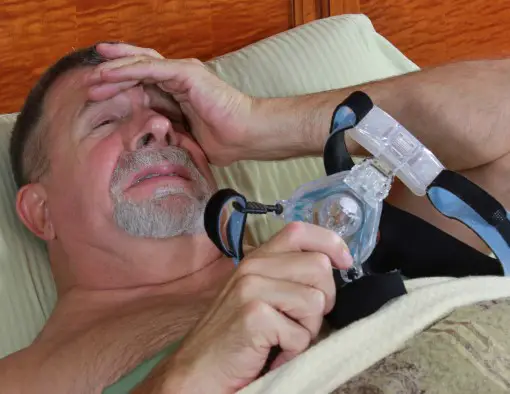
12 Alternatives worth a try if CPAP doesn’t work for you
By Jason Wooden, PhD | October 8, 2023
In this article, we talk about:
1) Why it’s so frustrating when CPAP isn’t working
2) Why you shouldn’t give up
3) 12 Alternatives worth a try
4) Getting answers from online forums
Why it’s so frustrating if CPAP doesn’t work
When the idea of using positive air pressure to open up obstructed airways was first tested in the 80s, it was a revolutionary break through and a real game changer. Since then, CPAP has become the gold standard for sleep apnea treatment.
I remember when I finally got my hands on a new CPAP machine and tried it out. For the first time in years, I woke up and felt functional!
Fortunately, CPAP works for me most of time. I do occasionally have a bad night or stretch when CPAP just isn’t working out for me.
And I’m honest enough to admit that CPAP doesn’t work for everyone. In fact, studies have found that as many as a third of sleep apnea patients eventually give up.
Some find the mask too uncomfortable while others complain about the blowing air, system leaks, dry nose, red eye, and nasal congestion. Noise from the machine can become a nuisance for both the user and a bedmate.
For some people, CPAP can really stress them out and may even trigger panic attacks.
Living with sleep apnea is tough enough. When the treatment isn’t working, it’s a real downer.
It can leave you feeling stuck, hopeless, and a sleep deprived zombie.
Don’t give up if CPAP is not working for you
If you’ve been struggling with CPAP therapy and you’re losing hope it can work for you, it’s important you don’t give up.
First, the downsides from untreated sleep apnea are pretty serious.
Besides ruining your days (and nights), it can increase your risk for other serious health challenges such as high blood pressure, heart disease, stroke, and diabetes.
One study found that people living OSA are twice as likely to experience sudden death compared to people living without it.
Sleep apnea can also hurt your performance on the job…
And strain the strongest of relationships…
Secondly, you’re not the first to struggle with CPAP and there are plenty of practical things you can try to get it working for you:
Deal with other things that can make CPAP harder
As you get used to CPAP, other things can creep up that make CPAP more stressful:
Dry mouth – try a different mask with a chin strap which can help keep your mouth closed
Out of control hose – get a ring stand or a CPAP pillow to keep it neatly out of the way
Chapping – try a CPAP anti-chap face cream or lip balm
Mask skin irritation – make sure it’s properly fitted (not too tight), regularly cleaned, check whether it’s made with latex instead of silicone
Noise – try wearing ear plugs or a white noise machine
Consider sleep counseling for sleep apnea
A specialized type of sleep counseling, cognitive behavioral therapy (CBT-i for short), can help identify and change thoughts and behaviors that affect sleep. It’s one of the most effective insomnia treatments.
Evidence is growing that it can make a difference for sleep apnea patients too. It can help manage stress, anxiety, and depression you’re dealing with that’s making things worse.
If you’ve tried everything you can think of and CPAP still isn’t working out for you, it’s really important to find an alternative as soon as you can.
There’s just too much at stake.
Let’s take a look at what else you can try.
What to try if it CPAP isn’t working for you
If CPAP is not working out for you, here’s where we get to the good news.
Sleep apnea is estimated to affect more than a billion people and there’s currently a lot of interest in coming up with more treatments. We’re also learning a lot about what’s actually happening in the bodies of people with sleep apnea.
So, we’re currently living in a golden age with more treatment options and remedies than ever before.
Many of the things you’ll find listed below are geared towards people with obstructive sleep apnea since it’s the most common type. Some are pretty simple and quick to get going on, others will take time to bear fruit.
(You can learn more about your treatment options for central sleep apnea here.)
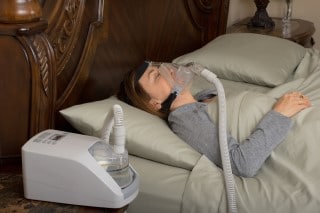
1) Try a different type of air pressure machine
You’ve likely already considered this but I had to put at the top of the list since its easy enough to try.
There are different types of air pressure machines and CPAP (continuous positive air pressure) is the most basic. It provides one steady level of pressure to the airway during sleep.
You may want to try a BiPAP machine (Bilevel positive airway pressure) which provides two levels of pressure for a more comfortable experience. It’s designed to provide higher pressure during inhalation and lower pressure during exhalation.
You can also try an APAP machine (Automatic positive airway pressure) which auto adjusts the pressure during sleep based on your particular needs at any moment. It’s able to sense changes in your breathing and adjust to a better pressure setting.

2) Switch to sleep on your side
Did you know that over half of obstructive sleep apnea sufferers have symptoms that are “position-dependent”? Their symptoms are worse if they sleep on their back.
Depending on the severity of your sleep apnea, sleeping on your side instead of your back may help keep your throat more open and improve symptoms.
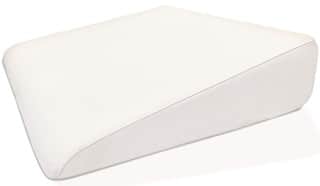
3) Try a wedge pillow
Believe it or not, a change of pillow can make a difference for some people. Researchers have found that elevating your head slightly with a wedge pillow at an angle of 7.5-degrees can help improve sleep apnea symptoms.
This trick has been to work best for people with mild to moderate obstructive sleep apnea.
You can try stacking pillows but you might want to instead give this foam wedge pillow here a try.
It’s designed to comfortably align the upper body and head at the right angle. (It’s also the one I use every night to help my sleep apnea.)

4) Mouth and throat exercises
As crazy as this may sound, various exercises using your mouth and throat may help strengthen the airway and surrounding muscles. This can help the airway stay more open and improve sleep apnea symptoms.
A recent study found that performing mouth exercises 3 times a day significantly reduced snoring and improved symptoms for patients with moderate OSA.
Learn more:
Mouth And Throat Exercises to Help Stop Snoring and Improve OSA (sleepfoundation.org)
Video: Throat exercises for snoring and sleep apnea
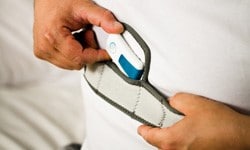
5) Position therapy
For people whose sleep apnea symptoms are worse when they sleep on their back, this approach trains patients to sleep on their side. A wearable device vibrates when you sleep on your back and slowly increases in intensity until you change position.
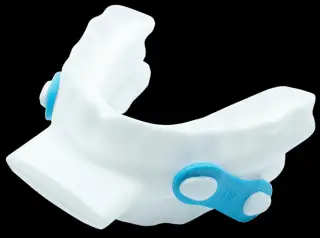
6) O2Vent Optima
Oral appliances are used to reposition the lower jaw and tongue so that the airway stays more open. They’re a less invasive alternative to traditional CPAP therapy.
O2Vent Optima is a mouthguard-like device that allows unobstructed air to flow to the back of the throat, bypassing common sites of obstruction such as the nose, tongue, and soft palate. Unlike other oral devices, it adds stability to the airway in two ways – moving the jaw forward and providing an airway channel.
It’s recommended for people with mild to moderate obstructive sleep apnea.
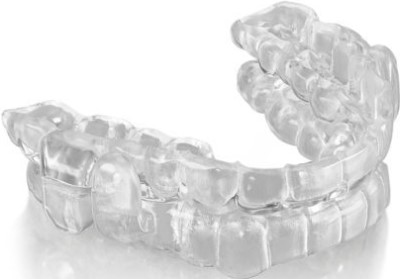
7) ProSomnus EVO™ [PH] Sleep and Snore Device
Uses new medical grade polymers and hinge components to more comfortably reposition and stabilize the patient’s jaw during sleep, increasing pharyngeal space and reducing the risk of upper airway collapse.
It’s thinner, less bulky, less intrusive, and more comfortable than other oral appliances
Works best for mild to moderate obstructive sleep apnea.
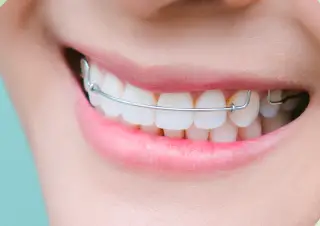
8) Vivos
Approved by the US Food and Drug Administration in 2021, the Vivos oral appliance uses a proprietary mouth appliance to reposition and train the jawbone so that the airway is not obstructed
Works best for mild to obstructive sleep apnea.

9) Weight loss
About half of people with sleep apnea are overweight, even a small amount of weight loss can help improve symptoms.
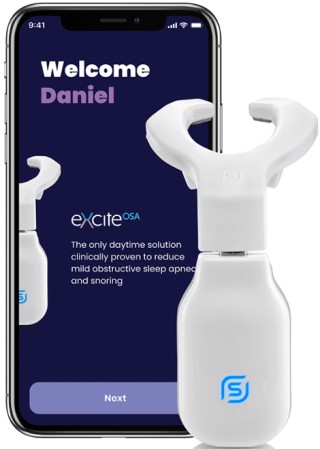
10) eXciteOSA
Approved in 2021, this device retrains the tongue and upper airway muscles to stay in position so that the airway is not obstructed.
Unlike many other sleep apnea therapies, this a day time treatment that you use for 20 minutes while awake. After 6 weeks only have to use it once a week.
eXciteOSA is recommended for patients with mild obstructive sleep apnea.
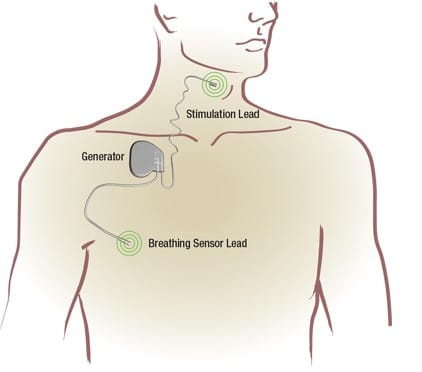
11) Inspire
Inspire is a revolutionary treatment for sleep apnea. It’s a device that’s surgically implanted in the chest and turned on using a remote. During sleep it monitors your breathing during sleep and stimulates a nerve to open up the upper airway as needed.
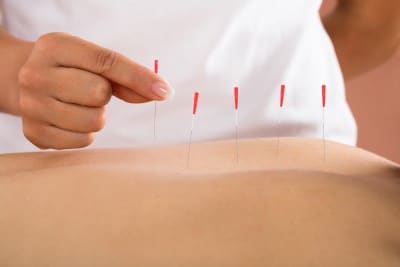
12) Acupuncture
Evidence is growing that it can reduce breathing interruptions in some obstructive sleep apnea patients.
Before working with an acupuncturist, it’s important to check their training and credentials, ask about what you can expect and potential risks, and check in with your doctor to see if there are any health concerns.
You can also get answers from sleep apnea patients in online forums
You’re not the first to struggle with CPAP. Online forums are a great place to share experiences and get answers to nagging questions from other people struggling to make CPAP work for them.
Apnea Board
Apnea Board is an educational forum with over 75,000 members.
MyApnea Forum
MyApnea is a community of patients, doctors, and researchers trying to improve the diagnosis and treatment of sleep apnea.
CPAPtalk.com
An online forum with over 40,000 CPAP users sharing ideas, learning about new developments, and exchanging their experiences with products.
CPAP.co.uk
A forum with 2,574 members sponsored by Intus Healthcare, a UK-based company that specializes in developing sleep apnea therapies.
r/SleepApnea
Reddit is a network of communities where people can dive into their interests, hobbies and passions. There’s a community for whatever you’re interested in …
SOME DISCUSSION THREADS:
Your Personal CPAP Success Story (Apnea Board)
Is CPAP helping at all? (Apnea Board)
sleep apnea when CPAP is not helping (Reddit)
CPAP Not Helping (Apnea Board)
CPAP never worked (Apnea Board)
If you ever feel like CPAP isn’t working for you, try sleeping without it one day (Reddit)
CPAP remedies:
How sleep counseling can help with sleep apnea
15 things to try if CPAP is stressing you out
9 Remedies worth a try for CPAP panic attacks
9 things that can help if you’re using CPAP with allergies
Best online sleep apnea forums and resources
CPAP alternatives:
The latest sleep apnea treatments
The quickest sleep apnea treatments you can get
Trends in CPAP adherence over twenty years of data collection: a flattened curve. J Otolaryngol Head Neck Surg. 2016 Aug 19;45(1):43. (source)
Sleep apnea increases risk of sudden death, cardiovascular conditions, 2021, Penn State website (source)
The influence of head-of-bed elevation in patients with obstructive sleep apnea. Sleep Breath. 2017; 21(4): 815–820. (source)
Oropharyngeal exercises significantly cuts snoring, 2015, CHEST Physician (source)
Connect with us:
About Us
Better Sleep Simplified® was founded as a place for you to get clear and well-researched information.
Our goal is to make sure you know about your options so that you take action sooner rather than later.
Check us out on YouTube:
Watch and Learn
Helpful sleep tips, interesting sleep facts and statistics you want to know about
Affiliate Disclosure
This site is a participant in the Amazon Services LLC Associates Program and other affiliate advertising programs designed to provide a means for sites to earn advertising fees by advertising and linking to them.
Important: BetterSleepSimplified.com is for informational purposes only and is not intended or implied to be a substitute for professional medical advice, diagnosis, or treatment. Always consult a physician for sleep and health concerns. See additional information.
